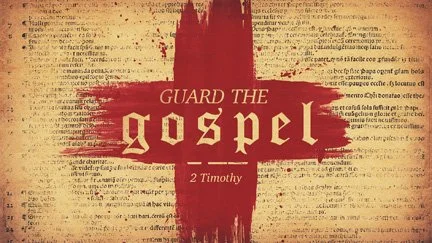Isaiah 42:1-9
On February 24 of last year, Russian president Vladimir Putin appeared on television to announce “a special military operation” in Ukraine, marking the start of a full-scale invasion of that country. This invasion was internationally condemned and many countries imposed sanctions against Russia, or increased already existing sanctions. In spite of Russia’s confidence that taking Ukraine would be easily achieved, that nation has held out now for nearly a year, thanks to support from many Western nations, including the United States. But the ongoing war has caused a refugee crisis, and tens of thousands of deaths, including many civilians deliberately targeted by Russian forces.
History has provided us with many examples of the kind of harsh, brutal, violent leadership exhibited by Mr. Putin. In Russian history, we might think of Stalin. In Germany, it was Adolf Hitler. In ancient times the list might include many of the Roman emperors. Obsessed with power and the need to acquire more and more territory, these men – and some women – were not averse to waging war to further their own ambitions. And millions of people have died as a result of this kind of agenda.
But that is not the kind of leadership that Jesus came to provide. While many Jews were looking for a Messiah who would be a mighty military leader who would free them from foreign control, a warrior like David, Jesus was never about that kind of leadership. Instead, Jesus embodied the leadership envisioned in the Servant Song found in Isaiah 42.
The book of Isaiah includes four of these Servant Songs, all of which describe the Messiah. Stephanie A. Paulsell, professor at Harvard Divinity School, says that this passage in Isaiah 42 is “a portrait of the kind of leadership we should expect from one called by God: patient, nonviolent, merciful. God’s chosen does not ‘execute justice’ by force. Indeed, this is a portrait of tender care – for those who are vulnerable.” The Servant comes to bring justice; that justice is not going to be just for one nation, but for all nations. And the Servant will not stop his work until justice has been established everywhere.
James H. Evans, professor emeritus at Colgate Rochester Crozer Divinity School in Rochester, New York, outlines four characteristics of the Servant, the Messiah. First, the Servant will be humble. He will not shout in the street or otherwise call attention to himself. Certainly we see humility in Jesus. He exhibited this humility when he washed the feet of his disciples at the Last Supper. And he called his followers to practice humility, to serve others rather than expect to be served.
Second, the Servant will be compassionate. Evans writes, “Those who are bruised and wounded in society will not be confronted by one who will break those who have already been bruised, nor will they have the tiny flame of life to which they have been clinging simply snuffed out.” Jesus always acted with compassion as he encountered various people during his ministry. He healed the sick, gave sight to the blind, raised the dead, fed the hungry, and called his followers to do the same. He did not turn away anyone who came to him, but practiced a radical hospitality and welcome, allowing into his company sinners, tax collectors, and women of questionable reputation. There was no one too insignificant to matter to Jesus; each person he met he treated as a child of God.
Third, the Servant will be persistent. He will not falter or be discouraged until the goal of justice on the earth is achieved. That is where the strength and power of Jesus are demonstrated. Jesus was not so meek and mild; he was not a doormat. Jesus stood up to powerful men and institutions to call them out on their wrong behavior and bad theology. He was not crucified because he was a nice guy just out to do good in the world. Jesus was not afraid to speak truth to power, and it got him killed. And many of those early followers of Jesus knew that to profess Christ could and would put their own lives on the line. But they were willing to die for the cause of Christ.
Finally, the Servant will have an agenda: to open eyes that are blind, to free captives from prison, and to release from dungeons those who are in darkness. Jesus cited a passage very similar to this one when he stood in the synagogue in Nazareth and addressed the people. And he said that this scripture had been fulfilled in their presence; in other words, Jesus himself was the fulfillment of the passage.
The leadership of the Servant – the Messiah – Jesus – was a leadership that was both gentle and powerful, kind and strong. Jesus could be both non-violent and tough in what Paulsell calls his “patient, but never-ceasing, work for justice.”
You might ask, “Can this model of leadership be effective if you don’t happen to be Jesus? Would it work for the average Christian?” And the answer is, “Yes!” There have been many leaders over the years who have tried and succeeded in achieving their goals by the style of leadership that Jesus modeled. I think of the non-violent protests of Mahatma Gandhi and the Rev. Dr. Martin Luther King, Jr.
But the person who first came to my mind was actually former U.S. President George H. W. Bush. Bush spoke about his vision for a kinder, gentler nation when he ran for president in 1988 and when he spoke at his inauguration. He said these words first at the Republican convention, in relation to his concern for “teaching troubled children through your presence that there’s such a thing as reliable love.” He said, “Some would say it’s soft and insufficiently tough to care about these things. But where is it written that we must act as if we do not care, as if we are not moved? Well, I am moved. I want a kinder, gentler nation.”
President Bush was a man who practiced gentleness and kindness in his personal life. One of his habits was hand writing thank you notes, each one of them personalized and sent in a timely fashion. Even his political opponents had to acknowledge that he had exquisite manners.
But don’t mistake Mr. Bush for a “wimp,” as one newsmagazine suggested at the time. President Bush was a war hero. He joined the Navy on his 18th birthday in 1942, when he could have stayed in school. At one point he was the youngest pilot in the Navy. He flew 38 missions off the carrier USS San Jacinto. He won the Distinguished Flying Cross for his bravery in combat. He was a man who may have had a reputation for weakness, but he was really a tough and effective leader.
All of us who follow Jesus are called to be servants who use our power gently. We should be persistent in trying to bring about justice and peace, but we should work patiently, kindly, and with compassion for others. And we should remember that Jesus was strong enough to face death with courage and dignity when his enemies finally succeeded in having him sentenced to crucifixion. As we gather around His table this morning, we remember a leader who was a servant willing to sacrifice even his own life for the sake of his message of hope, love, life and justice.










